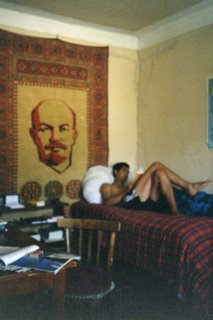xvi.

Little Village Environmental Justice Organization and Pilsen Environmental Rights and Reform Organization, both grassroots organizations for social justice, have earned their stripes by forcing action on Crawford and Fisk generating stations to clean up or shut down.
Dorian Breuer, director of PERRO, told about a family who lived a half-block from the Fisk plant and had four asthmatic kids—one on a respirator. He hopes to team with a UIC chemistry professor to have students conduct field studies on ground samples around Fisk.
Samuel Villasenor, the “clean power” campaign organizer at LIVEJO, recalls from memory at least six to seven adults with new onset asthma who acquired it after moving to the Little Village neighborhood.
The amended Clean Air Act of 1990 has improved air quality since by mandating clean-up projects and imposing fines for breaching quality-control limits set by the U.S. EPA. In 2006 the H. Kramer and Co. brass foundry in Pilsen was hit with a $10,000 fine and a $500,000 clean-up project imposed by the EPA.
In November 2007 Mayor Daley introduced the Climate Action Plan, a program aimed at modernizing residential and commercial buildings to reduce energy use.
According to Ald. Manuel Flores, the Department of Environment is currently conducting an analysis on the impact carbon emissions have on health. The report is scheduled for release in mid-2008.
The U.S. EPA passed legislation recently to lower ozone-emission controls even more: Since 1980, ozone levels have dropped 21 percent as EPA, states and local governments have worked together to improve the quality of the nation’s air, according to a March 12th press release.
But environmental activists want it harder on urban-situated facilities.
EPA standards provide a flat-level basis, though when considering location, urban settings need lower emission standards to account for population density, according to Breuer.
“We’re also being affected by a myriad of other social ills like education and health care,” Breuer said.
“We need a stick-and-carrot approach” to developing a better partnership for sustainable energy between business and government, said Ald. Flores, a member of the Committee on Energy, Environmental Protection and Public Utilities.
“The stick is missing,” the alderman added; that stick is government.

